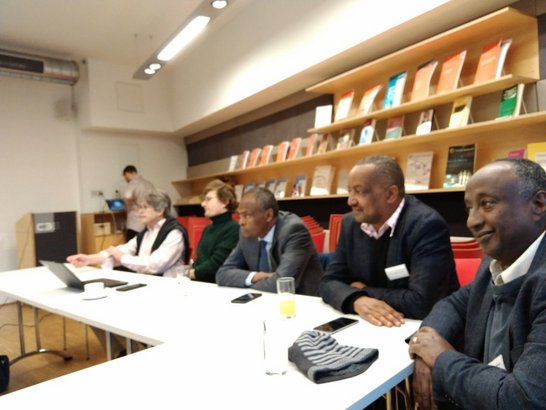Employability and Lifelong Learning in Technical and Vocational Professions. A Joint Partnership Research Project in Austria and Ethiopia | CDR AT/ET
Cooperating countries: Ethiopia and Austria
Coordinating institution: University of Klagenfurt
Partner institutions: Addis Ababa University
Project duration: 1 November 2020 - 31 October 2024
Budget: € 49.950,00
Project summary
Employability and Lifelong Learning in Technical and Vocational Professions: A Joint Partnership Research Project in Austria and Ethiopia is a joint research project aimed at examining the following areas in consideration of SDG goal 4 “Ensure inclusive and quality education for all and promote lifelong learning” by focussing two major issues: On the one hand, it deals with qualification research related to outcomes of formal education systems, and employability. On the other hand, it deals with country-specific development and implementation of National Qualifications Frameworks and their relation to TVET, continuing education/workplace learning, and the labour market.
The proposed research project was co-operatively designed. The endeavour aims at joint knowledge production, borrowing from principles of participatory research. It is in line with international comparative approaches, for they offer context-sensitiveness and support strong outcome by systematic comparison. Two research desiderata have been identified that are of particular interest to both partners:
Qualification Research related to outcomes of formal education systems, and employability: TVET outcomes in terms of employability, employability skill development factors with regard to TVET-school-to-work-transitions, curricula development, qualification of TVET teachers and trainers, competence-oriented trainings structures;
A central task within this joint project is the Employability Study in order to contribute to TVET-development in Ethiopia, because youth unemployment is one of the serious problems facing Ethiopia. Recently, although enrolment in TVET institutions has increased, there is a mismatch between job seekers and available employment possibilities. Moreover, relevance of the training to job and enterprise development, the climate for self-employment, readiness of graduates, absorptive capacity of the industry and service sectors, and willingness of apprenticeship offering companies or enterprises found to be detrimental in explaining the nature of relationship between skill development and school-to-work transition. The main objective of this joint study is, therefore, to share the rich experiences from Austria and based on it suggest ways to minimize youth TVET graduate unemployment in Ethiopia and thereby contribute to analysing and solving local challenges and to achieving the SDGs.
Country-specific development and implementation of National Qualifications Frameworks NQF and their relation to TVET, continuing education/workplace learning and the labour market: Drawing lessons from international comparison with regard to employment of non-trained works in the industry and services sectors in Ethiopia and their skills and knowledge development; validation and certification of non-formal/informal learning within the ENQF (“Occupational Assessment” procedure); permeability of TVET with regard to access to Higher Education; experts for validating learning outcomes;
A central task within this joint project is the NQF-study in order to draw lessons from international comparison especially for the Austrian NQF with regard to recognition of non-formal and informal learning outcomes, and lifelong learning/employability, and permeability based on Ethiopian expertise and ENQF implementation.
The research desiderata are dealt with from different perspectives and by applying different research methods, drawing on quantitative-empirical and qualitative-empirical research methods. Lead and responsibilities will vary according to country-specific research desideratum, and expertise.

